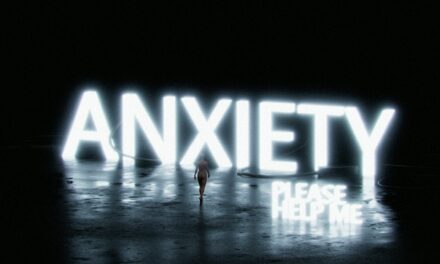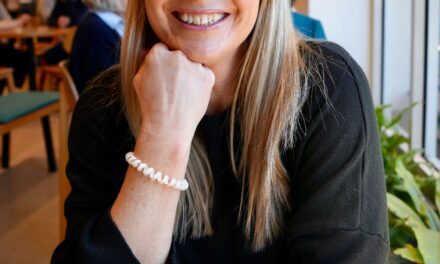Find Healing Through Compassionate Therapy
Transform Your Relationship with Food
What if emotional eating isn’t about lack of willpower, but about coping, survival, and self-protection?
Meet Becky Stone
Understanding Emotional Eating
Have You Ever Eaten When You Weren’t Hungry?
You’re not alone. And you’re not a failure.
Is it boredom? Is it food noise? Is it anxiety?
Sometimes, it’s not about hunger at all; it’s about pain. Emotional pain that sits in your body with nowhere to go. So you eat. Because food is readily available, it numbs quickly. It hits quickly.
I remember bowls and bowls of cereal. Leftovers. The excitement of food that wasn’t “mine.” Even telling my children I had to test the food, to check it wasn’t poisonous.
Not one of my finest moments. The shame ran deep. But it wasn’t greed.
It was trauma. And it was survival.
The Neuroscience of Emotional Eating
Your brain isn’t failing you. It’s protecting you.
When we’re emotionally overwhelmed or under-stimulated, food becomes a quick and effective way to alter our internal state.
Here’s what happens:
-
Dopamine is released in anticipation of food, especially sugary or fatty foods. This lights up the brain’s reward system.
-
Cortisol, your stress hormone, rises when you’re anxious or dysregulated, driving cravings and impulsivity.
-
If you’ve restricted your food intake during the day, your body kicks in with powerful hunger signals. What feels like a binge is often just your body’s way of fighting to survive.
-
For neurodivergent people (ADHD, autism, sensory profiles), food can become a vital way to regulate stimulation or soothe overwhelm.
It’s not a lack of control. It’s a learned safety response.
Emotional Eating as a Coping Mechanism
Understanding Your Body's Response
We don’t shame the behaviour, we explore it with curiosity and compassion.
A — Awareness
What am I feeling right before the urge to eat? What happened five minutes ago?
C — Compassion
How would I speak to a friend if they were doing what I’m doing? Can I offer myself the same softness?
E — Experiment
What could I try next time that feels safe, simple and respectful of both my emotions and my body?
We use this process to build connection, not control.
Discover a Path to Recovery
You’re Not Out of Control, You’re Coping
Emotional eating is rarely about food itself.
It’s about:
-
Loneliness
-
Burnout
-
Trauma
-
Sensory overload
-
A nervous system that doesn’t feel safe
We don’t heal by beating ourselves up. We heal by understanding what we need.
And that starts with removing shame from the equation.
Explore the Path to Recovery
Try This Instead of Shaming Yourself
Here are some strategies I use with clients and in my own recovery:
-
Eat regular meals. Your body can’t regulate emotions on an empty stomach.
-
Use grounding techniques. Try the 5-4-3-2-1 sensory check-in to anchor yourself when the urge to numb out hits.
-
Write down what was happening right before. The moment before is where the gold is.
-
Say what’s true. “This is stress. This is fear. I’m not bad. I’m just hurting.”
These aren’t quick fixes. They’re nervous system care.
Rebuild Trust with Yourself
I Know This Pain, Because I’ve Lived It Too
Yes, I’m a therapist. But I’m also someone who:
-
Has eaten food she promised herself she wouldn’t
-
Has bought food again because she ate it in secret
-
Has justified eating with white lies because the guilt was too loud
I’ve done it. And I’ve also healed a lot of it.
Recovery doesn’t look like perfection. It looks like honesty. Slowing down. Asking for help. Treating your body like it belongs to someone you love.
That’s what I help my clients work toward, one safe, real moment at a time.
You Are Not Broken
Try saying these out loud:
-
I deserve nourishment, not punishment.
-
I am learning new ways to cope, not failing.
-
I can break the shame loop with kindness.
-
I am safe in my body, even on hard days.
You are not greedy. You are not lazy. You are not out of control.
You are a human being doing your best to survive.
And you are doing better than you think.
As a therapist who has walked this path myself, I understand the complexities and challenges that come with recovery. My practice is built on the principles of empathy and understanding, ensuring that you feel heard and supported every step of the way. I specialize in working with neurodivergent clients, recognizing the unique ways in which sensory experiences and emotional regulation can impact eating behaviors.
Recovery is not about perfection; it’s about progress and self-compassion. By focusing on your strengths and building resilience, we can navigate the ups and downs of this journey together. I am here to guide you through the process, offering insights and strategies that are both practical and transformative. Let’s take the first step towards healing and rediscovering a healthier, more fulfilling relationship with food and yourself.
Embrace a New Beginning
Want more like this?
If this blog resonated with you, you’ll love my weekly emails. I send honest, trauma-informed support straight to your inbox, focused on recovery, self-worth, and the things we all need to hear.
No fluff. No spam. Just guidance that helps
Becky stone
I’m Becky Stone, a qualified eating disorder therapist based in the UK. I work with both teens and adults, offering a calm and non-judgmental space to explore what recovery truly mean, on your terms.
With a background in supporting people through anorexia, bulimia, binge eating, and body image struggles, I know how complex and personal this journey can be.
My work is shaped by both professional training and lived experience, which helps me connect with clients in a real, honest way. I specialise in supporting neurodivergent individuals, including those with ADHD and autism, and I believe in flexible, shame-free recovery.







